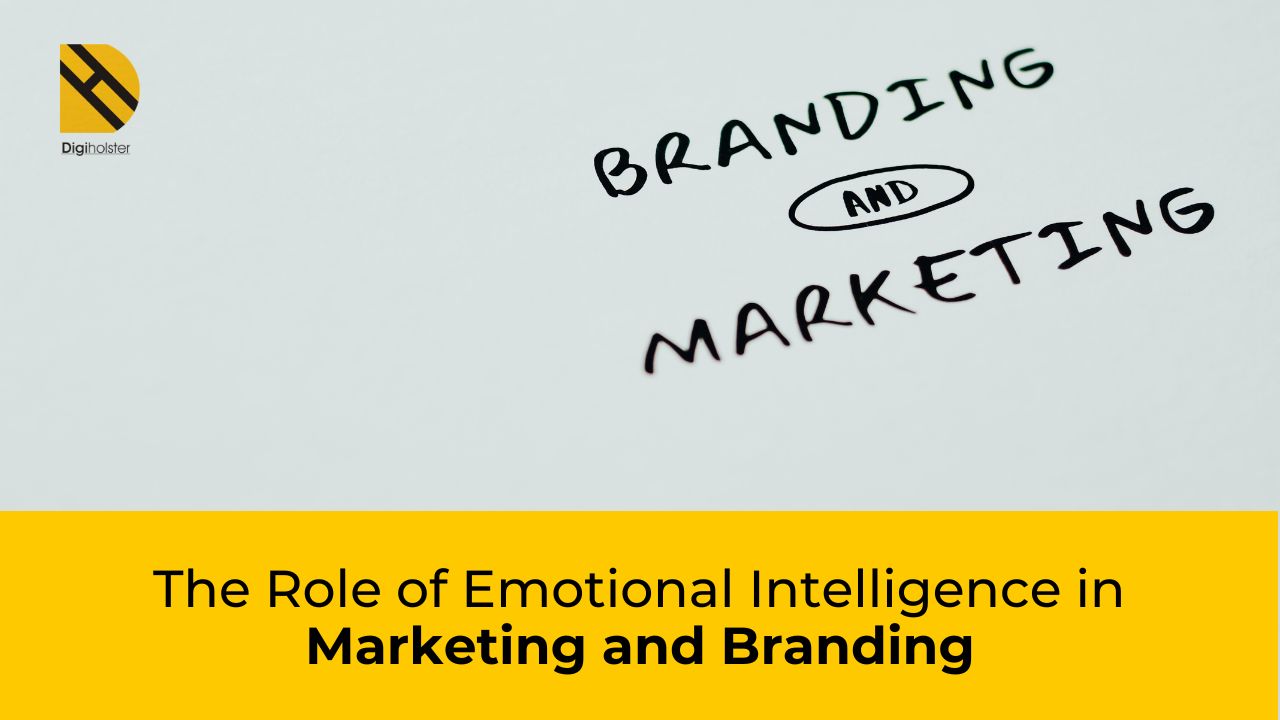
The Role of Emotional Intelligence in Marketing and Branding – Marketing and branding are two crucial components of any business, as they help establish a company’s reputation, attract customers, and ultimately drive revenue. However, for marketing and branding efforts to be truly effective, it is important to understand the role of emotional intelligence (EI) in these processes.
Emotional intelligence is the ability to understand, interpret, and manage our own emotions, as well as those of others. When it comes to marketing and branding, having a strong sense of emotional intelligence can help businesses better connect with their target audience, build a more effective brand image, and ultimately drive greater success.
Understanding Your Target Audience
One of the key ways in which emotional intelligence can benefit marketing and branding efforts is by helping businesses understand their target audience. By using emotional intelligence to assess the emotions, motivations, and desires of your target market, you can develop a deeper understanding of what they want and need from your business.
For example, if your target audience is primarily composed of busy, working parents, you may want to focus on marketing your products or services as convenient and time-saving. On the other hand, if your target audience is comprised of young, tech-savvy individuals, you may want to focus on showcasing your products or services as innovative and cutting-edge.
By using emotional intelligence to understand your target audience, you can create marketing and branding strategies that resonate more deeply with them, and ultimately drive greater engagement and conversions.
Building a Strong Brand Image
Another way in which emotional intelligence can benefit marketing and branding efforts is by helping businesses build a strong brand image. A strong brand image is essential for building brand loyalty, attracting new customers, and ultimately driving sales.
Emotional intelligence can help businesses build a strong brand image by allowing them to understand the emotions and motivations of their target audience. By tapping into these emotions, businesses can create a brand image that resonates deeply with their target audience, and inspires a strong emotional connection.
For example, a company that is focused on promoting environmental sustainability may choose to use emotionally-charged images and messages that appeal to the emotions of eco-conscious consumers. This can help the company build a strong brand image that is aligned with the values and motivations of its target audience, and ultimately drive greater engagement and success.

Effective Marketing and Branding Strategies
Finally, emotional intelligence can be leveraged to create more effective marketing and branding strategies. By using emotional intelligence to understand the emotions and motivations of your target audience, you can create marketing and branding campaigns that resonate deeply with them, and drive greater engagement and conversions.
For example, you may use emotionally-charged images and messages in your marketing campaigns to appeal to the emotions of your target audience. This can help increase the impact of your marketing efforts, and ultimately drive greater success for your business.
“The Impact of Emotional Intelligence in Marketing and Branding: A Comprehensive Overview”
It can a broad topic but we will discuss some points here.
Emotional Intelligence in Marketing:
Emotional intelligence is a critical aspect of marketing as it allows marketers to understand and connect with their target audience on an emotional level. Marketers who have high emotional intelligence are better equipped to create marketing campaigns that resonate with their target audience, leading to increased engagement and sales. They are also able to effectively manage their own emotions, which helps them maintain a positive attitude, even in challenging situations.
Emotional Intelligence in Branding:
Emotional intelligence plays a crucial role in branding, as it helps brands to understand the emotional connections that consumers have with their products and services. Brands that have high emotional intelligence are better equipped to create a strong brand identity that connects with consumers on an emotional level. This leads to increased brand loyalty and a positive brand image.
Emotional Intelligence and Customer Experience:
Emotional intelligence is critical to creating a positive customer experience, as it allows businesses to understand and respond to their customers’ emotional needs. Companies that have high emotional intelligence are better equipped to provide a seamless and personalized customer experience, which leads to increased customer satisfaction and loyalty.
Emotional Intelligence in Sales:
Emotional intelligence is crucial for sales professionals as it allows them to build strong relationships with their customers. Salespeople who have high emotional intelligence are better equipped to understand their customers’ needs, and respond to their emotional cues, leading to increased sales and customer loyalty.
Emotional Intelligence in Leadership:
Emotional intelligence is a critical aspect of leadership as it allows leaders to understand and respond to the emotional needs of their employees. Leaders who have high emotional intelligence are better equipped to create a positive and supportive work environment, which leads to increased employee engagement and job satisfaction.
Emotional Intelligence and Customer Engagement:
Emotional intelligence is critical to customer engagement, as it allows businesses to understand and respond to their customers’ emotional needs. Companies that have high emotional intelligence are better equipped to create a personalized and engaging customer experience, leading to increased customer engagement and loyalty.
Emotional Intelligence in Marketing Research:
Emotional intelligence is critical to marketing research as it allows researchers to understand and respond to the emotional needs of their target audience. Researchers who have high emotional intelligence are better equipped to create research studies that resonate with their target audience, leading to increased engagement and more accurate results.

Emotional Intelligence in Marketing Communications:
Emotional intelligence is crucial to marketing communications, as it allows marketers to understand and respond to the emotional needs of their target audience. Marketers who have high emotional intelligence are better equipped to create marketing communications that resonate with their target audience, leading to increased engagement and sales.
Emotional Intelligence in Marketing Strategy:
Emotional intelligence is critical to marketing strategy, as it allows marketers to understand and respond to the emotional needs of their target audience. Marketers who have high emotional intelligence are better equipped to create marketing strategies that resonate with their target audience, leading to increased engagement and sales.
Emotional Intelligence and Brand Loyalty:
Emotional intelligence is crucial to brand loyalty, as it allows brands to understand and respond to the emotional needs of their customers. Brands that have high emotional intelligence are better equipped to create a strong brand identity that connects with their customers on an emotional level, leading to increased brand loyalty and a positive brand image.
Conclusion
In conclusion, emotional intelligence plays a crucial role in the marketing and branding of any business. By using emotional intelligence to understand your target audience, build a strong brand image, and create effective marketing and branding strategies, you can drive greater success for your business and ultimately outrank your competitors.
Article by Digi Holster
